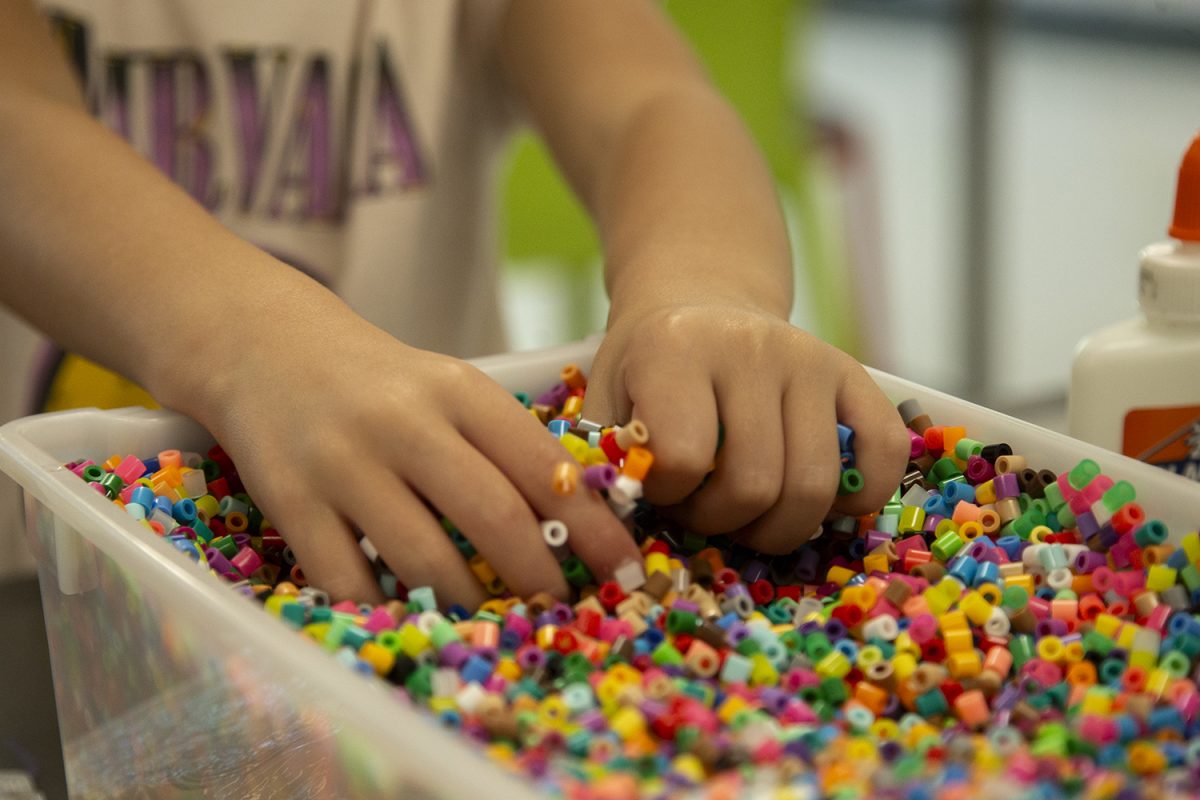The Robert A. Lee Recreation Center’s arts and crafts room was already open, with a single long, narrow table in the center of the space. On top of it was a container of googly eyes, a bag of popsicle sticks, glue, and another container of cut-up colorful squares of paper labeled “colored mosaics.”
Right in the middle of the table was 6-year-old Edith Mesaros, talking with a staff member while making the most of her time.
A new program has debuted at the recreation center: Sensory Saturday. Consisting of many activities, its goal is to adapt the environment for individuals with sensory needs.
The staff planned activities from September to the foreseeable future. One of them stood out from all the rest, deemed “Brain Breaks.”
Activities under this included the left-hand challenge, where students practiced writing with their non-dominant hands, or a dance party, where the leaders turned on upbeat music so the participants could dance along.
“Sometimes we’ll have extra time between crafts or activities. If someone doesn’t want to do a craft, or maybe it gets too loud in the room, then the brain breaks would be something we could do on the side. Maybe to get energy out, or calm down the nervous system,” Regan Irmiter, another adaptive and inclusive recreational lead, said.
Irmiter said the events ranged from STEM activities and arts and crafts to other practices like adaptive swim lessons, cooking, or walking.
RELATED: Iowa City museums that make the perfect weekend activity
Edith’s father, Matthew Mesaros, said she had a CTCF-related disorder, and that it was only confirmed that 150 kids had it globally. According to the National Library of Medicine, this is characterized by developmental delay and intellectual disability.
“It has led to some growth delay. She’s sensitive to odd things, like going in reverse. I remember if we were in a car and were backing up when she was a baby, she would freak out. It’s less so now because she’s been doing physical therapy so long, so she’s more in control and comfortable with her body,” he said.
Even though Sensory Saturdays are relatively new, they provide a way to stimulate the senses starting at a young age. According to Action for Children, since children do not have a firm grasp on the outside world yet, activities like this can help them use their senses and retain information from their experiences.
“You can only know from genetic testing. There are probably many, many more people in the world where that is expensive for many people. It just happened to be reasonably priced enough here [in Iowa] for us to do it,” Mesarossaid.
Despite being the first event Edith had attended, she was in a happy mood, gluing several sheets of colored mosaics onto a popsicle stick.
“We’d like to do more,” Mesaros said. “We’ve had sensory play for her since she was a baby, like a bin filled with corn or rice, or something that she could play with.”



